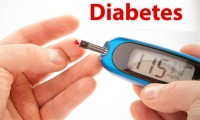-
China’s Cardiovascular Drugs Import and Export Report
- Source: Ddu
- 1,939
- October 19, 2017
-
Hormone therapy for prostate cancer increases cardiac risk
- Source: medicalnewstoday
- 837
- October 19, 2017
-
Boehringer’s new risk-prediction model will tap patients who could be good Jardiance candidates
- Source: company insights
- 881
- September 28, 2017
-
This Drug Has Significant Implications for Heart Disease
- Source: newsjs
- 873
- August 31, 2017
-
FDA clears AUM’s diagnostic cardiovascular device
- Source: medicaldevice-network
- 731
- August 11, 2017
your submission has already been received.
OK
Subscribe
Please enter a valid Email address!
Submit
The most relevant industry news & insight will be sent to you every two weeks.









